What is a MedicAlert Digital Health Profile?
Your MedicAlert digital health profile is the foundation of your protection in an emergency. It’s a powerful tool that makes your complete medical information easily accessible when it matters most—giving first responders the critical details they need to provide fast, accurate treatment. It tells your full health story—far beyond what can be engraved on your ID.
Everything that won’t fit on your ID lives in your profile. That means emergency personnel know not only what to do, but what to avoid. In a crisis, knowing you’re diabetic, on blood thinners, or have a pacemaker can dramatically impact how you’re treated.
When seconds count, having your full health history at responders’ fingertips can mean the difference between life and death.

Is MedicAlert's digital health profile really that important?
Yes, it is. You can buy a medical ID from anyone. But only MedicAlert’s digital health profile gives first responders ALL the information they need to treat you quickly and safely. The information in your health profile is what our 24/7 emergency response specialists relay to first responders in an accident or medical emergency.
MedicAlert developed our health profile in collaboration with the American College of Emergency Physicians (ACEP). We asked the experts, “What are the most important things emergency personnel need to know about a patient during an emergency? What’s the best order for that information?”
With their input, we developed a digital health profile that purposefully presents your essential health information in the most useful order for doctors and emergency care teams.
FAQs
How do I create & update my digital health profile?
When you become a MedicAlert member, you set up a user name (your email) and password that lets you log in to your Member Dashboard. From there, At MedicAlert, we ensure that extensive physical and administrative safeguards are in place to protect your health information.
Is MedicAlert's digital health profile secure?
Your privacy is important to us. That’s why your digital health profile is encrypted and securely stored on HIPAA (Health Insurance Portability and Accountability Act) compliant servers. At MedicAlert, we ensure that extensive physical and administrative safeguards are in place to protect your health information.
What information can I store in my digital health profile?
Your vital health information is of most importance, and the contents you can store in your profile varies based on your MedicAlert protection plan level. Dive in below and explore what’s available to you.
Information to include in your digital health profile:
First Responder Alert
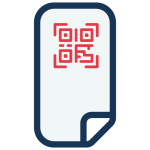
Just like on an engraved ID, the First Responder Alert should be a short review of your most critical information that first responders must know to treat you accurately.
You have 120 characters in this field, so make them count!
Here’s an example:
PCN & Latex Allergy. CHF & A-FIB. On Blood Thinners, Beta Blockers. Type 2 Diabetes.
From this, emergency personnel know right away to use non-latex gloves and if needed, administer antibiotics other than penicillin and its derivatives. They know you have heart disease and because you’re on blood thinners, they know to check for internal bleeding. Diabetes tells them to immediately check your blood sugar to see if low or high blood sugar is the cause of any of your current symptoms.
Allergies
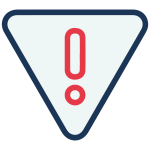
The allergies section contains:
- What you are allergic to
- Primary and secondary reaction types
- An alert flag for allergens that could cause anaphylaxis
If you don’t have any allergies, it’s a good idea to check the box for “No Known Allergies.” That’s vital information for medical professionals when they are searching for causes for your symptoms.
Medications
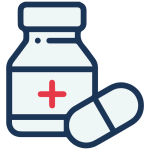 There are many medications that impact how you should be treated in an emergency, or have contraindications for other drugs. Some common medications that are critical for first responders to be aware of are insulin, blood thinners, heart disease drugs, and immunosuppressants.
There are many medications that impact how you should be treated in an emergency, or have contraindications for other drugs. Some common medications that are critical for first responders to be aware of are insulin, blood thinners, heart disease drugs, and immunosuppressants. MedicAlert’s health profile enables you to keep a current list of all your medications. For each medication, you can designate:
- Dosage
- Frequency
- Schedule
Medical Conditions
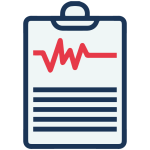
Surgeries
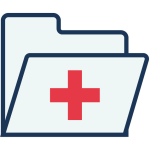
- Types of surgeries.
- Pertinent details about the surgeries.
- Surgery dates.
Medical Devices
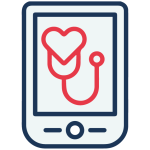
- Device name.
- Date implanted.
- Device serial number.
Vaccinations
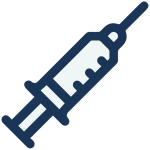
- All vaccinations.
- Dates administered.
Patient Instructions

- The use of rescue medications.
- Special assistance needs.
- Mobility issues.
- Contraindication for tests and procedures.
Identifying Information

- Hair, eye color.
- Complexion.
- Beard, other facial hair.
- Dentures.
- Scar, tattoo.
- Glasses, contacts.
- Birthmark, mole.
- Hearing aid, cane.
- Veteran.
Emergency Contacts

Medical Providers
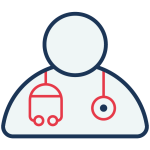
Advanced Directives
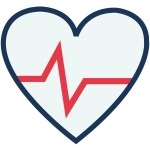
Documents
The documents section allows you to add any documents that you would like to store for appointments, personal use, and even emergencies, such as:
- Magnetic resonance imaging (MRI), computerized tomography (CT) scan test results.
- Extensive allergy list.
- Health care surrogate.
- Extensive surgical history.
- Lab results.
- Dietary supplements
Print Health Records
While your health records are stored digitally, in some instances, you might decide to print out certain records for your own personal use or to provide to health or wellness personnel. This function allows you to print any and all of your health records as needed.